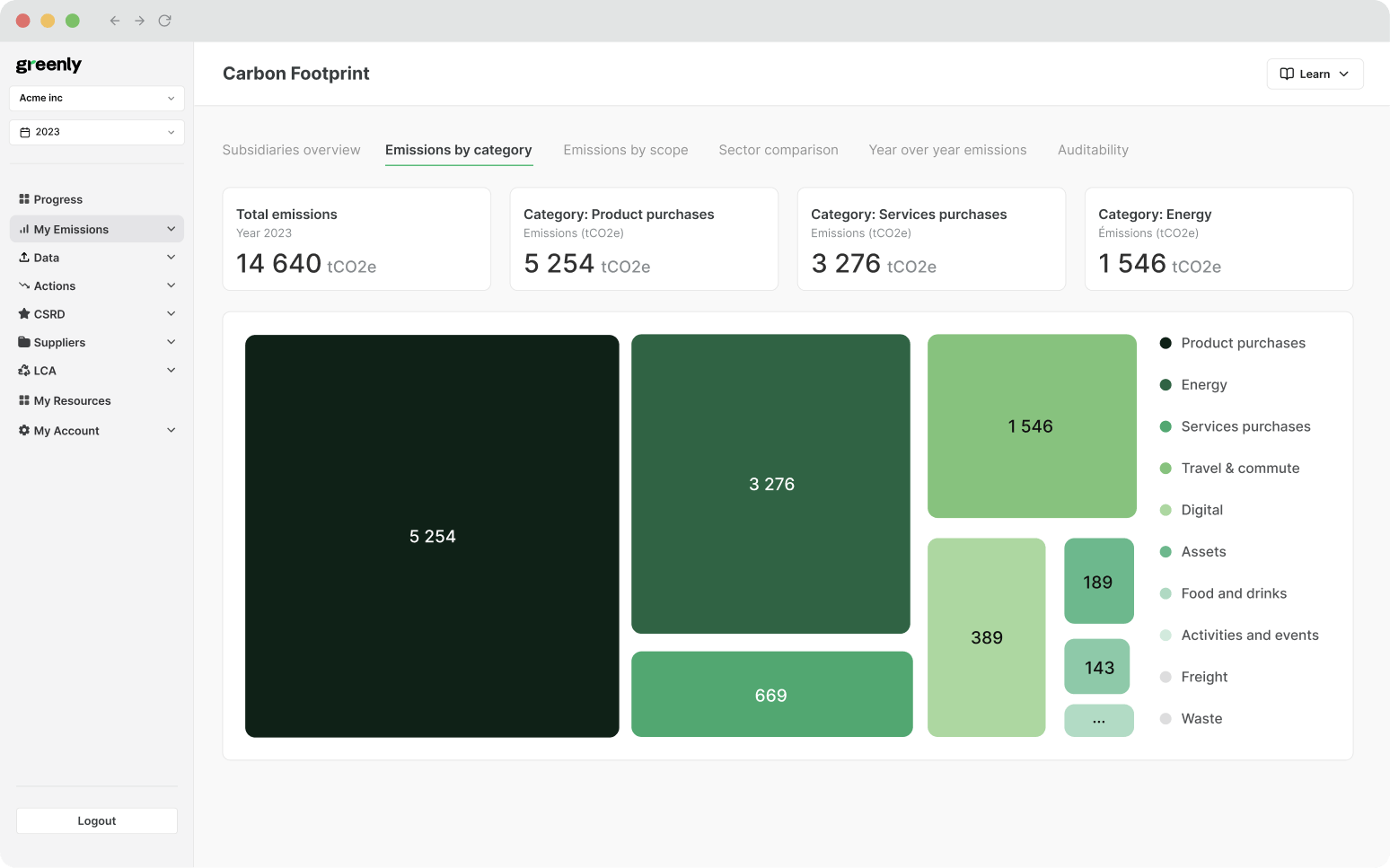ESG / CSR
Industries
Is Nuclear Energy Clean: Answers and Explanations
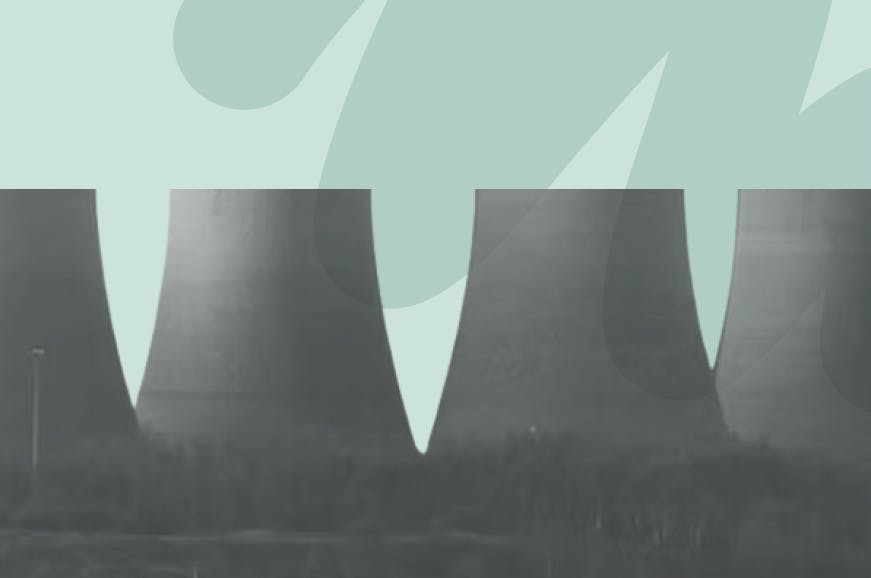


In the midst of the climate change crisis, everyone is talking about how to implement renewable energy sources to mitigate greenhouse gas emissions that continue to pollute the planet.
Is nuclear energy clean, and a way for businesses to reduce their carbon footprint while remaining efficient?
Companies are busy trying to implement equipment, such as a carbon capture and storage system, to reduce their carbon dioxide. But why strive to reduce continuously emitted greenhouse gasses when companies can transition from the need for the fossil fuels that produce them in the first place?
Nuclear energy can help people meet their net-zero emissions targets while providing the electricity needed to run their company, but not many businesses around the world have implemented the use of nuclear energy – perhaps due to the fear of nuclear waste, little access to nuclear power stations, or the need for nuclear fuel.
In this article, we'll break down in nuclear energy clean and if it serves as a potential resource to reduce emissions and combat climate change.
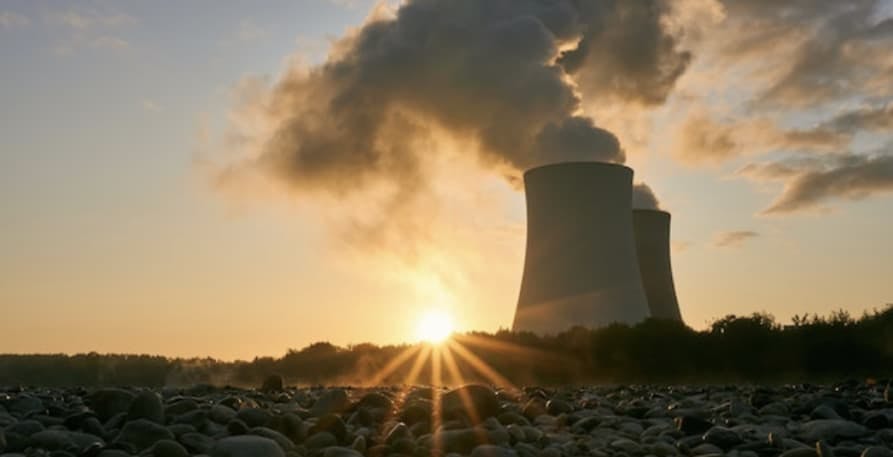
What is nuclear energy?
Nuclear energy is created when atoms split in a reactor that turns water into steam, and then is used in a turbine to produce electricity. There are 93 nuclear reactors in the United States, and together they account for twenty percent of the country's electricity.
Nuclear energy is produced and used without carbon emissions, as it makes use of uranium instead of fossil fuels. However, some still argue if nuclear energy is clean despite the fact it doesn’t contribute to excessive carbon dioxide or greenhouse gas emissions when in use.
Understanding the nuclear industry
The process to produce energy and low carbon electricity with nuclear plants may be confusing, but understanding these common terms used in the nuclear industry can help to break it down:
- Nuclear Fission – This refers to the process when the nucleus of an atom splits into smaller parts, releasing a significant amount of energy – and nuclear fission is the main method used in nuclear power plants.
- Nuclear Fusion – This refers to the process of combining two atomic nuclei to form a heavier nucleus, which releases even more energy than nuclear fission. Although it isn't available commercially, nuclear fusion is being researched as a future energy source.
- Nuclear Power Reactors – These are the facilities where nuclear fission is controlled, used to generate heat, and power turbines to produce electricity. Different types of nuclear power reactors exist, including pressurized water reactors (PWRs) and boiling water reactors (BWRs).
- Generate Electricity – This is when the heat produced from nuclear fission turns water into steam, which drives turbines connected to generators, which ultimately is used to produce electricity.
- Process Called Nuclear Fission – This is the fundamental reaction behind nuclear power generation, where atoms (typically uranium-235 or plutonium-239) are split to release energy.
- Produce Energy – Nuclear reactions release large amounts of energy, which makes nuclear power one of the most efficient sources of electricity generation – seeing as one uranium pellet can produce as the same amount of energy as an entire ton of coal.
- Low Carbon Electricity – Since nuclear power plants do not emit greenhouse gases during operation, it highlights the potential for nuclear power plants to serve as a way for us to reduce carbon emissions and combat climate change.
Overall, nuclear energy provides a reliable, efficient, and low-carbon source of electricity, which can help us to meet global energy demands while also avoiding the use of natural gas and reducing greenhouse gas emissions
Is nuclear energy clean?
Nuclear energy itself is clean, and doesn’t produce excessive greenhouse gasses that traditional energy sources like oils, coal, and fossil fuels do.
However, the process necessary for the implementation of nuclear power plants can create excessive waste – and requires more energy to initially install than other types of renewable energy like wind turbines.
Therefore, it is questionable whether nuclear energy is truly clean or not – as the process to build and maintain a nuclear power plant is not 100% ethical or environmentally friendly.
The table will break down some of the reasons why nuclear energy is clean, and additional reasons why nuclear energy may not be considered as a source of clean energy:
| Reasons Why Nuclear Energy is Clean | Reasons Why Nuclear Energy May Not Be Considered Clean |
|---|---|
| Low Carbon Emissions – Nuclear power plants produce electricity without emitting carbon dioxide, helping to combat climate change. | Radioactive Waste – The disposal of spent nuclear fuel and other radioactive materials poses long-term environmental challenges. |
| Efficient Energy Production – A small amount of uranium can generate vast amounts of energy compared to fossil fuels. | Risk of Accidents – While rare, nuclear disasters like Chernobyl and Fukushima have had severe environmental and human health impacts. |
| Reliable & Continuous Power – Unlike solar and wind, nuclear plants operate 24/7, providing a stable energy source. | Uranium Mining & Processing – Extracting and refining uranium can cause environmental damage and require significant energy input. |
| Supports Decarbonisation – Nuclear energy helps reduce reliance on fossil fuels, aiding in global sustainability efforts. | High Water Usage – Nuclear reactors require large amounts of water for cooling, which can impact local water supplies. |
| Long-Term Sustainability – Advances in nuclear technology, such as thorium reactors and nuclear fusion, could make it even cleaner. | High Initial Costs – Building and maintaining nuclear power plants require significant investment, which can deter adoption. |
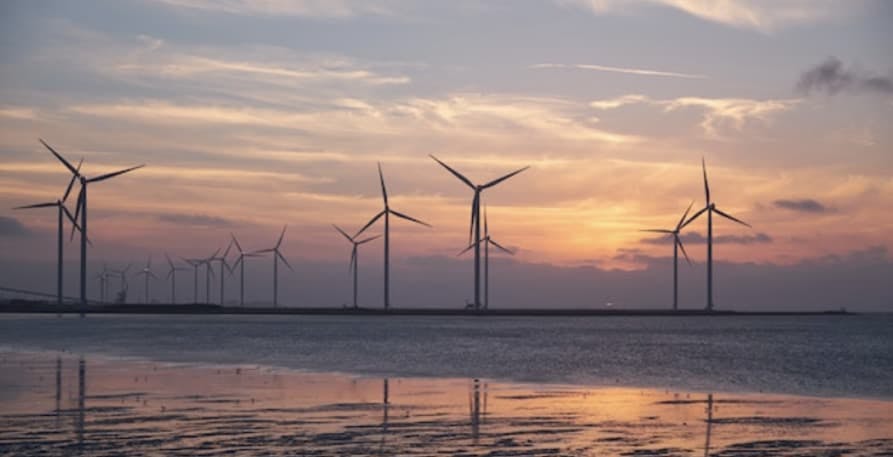
What are the downsides to using nuclear energy?
While there are many benefits to the use of nuclear energy, there are several potential negative consequences that could come from a company deciding to source their energy from a nuclear power plant.
Here's a breakdown of some of the downsides to using nuclear energy:
Nuclear Energy Takes Time to Become Fully Operational
It’s time consuming to install a nuclear reactor, as it requires time to find a site, retrieve a permit, secure the land, and build the nuclear power plant itself.
The nuclear power plants to exist so far have taken anywhere from a decade to nineteen years to complete from start to finish, such as the Olkiluoto 3 reactor in Finland – which was initially proposed in December 2000 and wasn’t completed until 2020.
Many companies don’t want to invest the time necessary to install a nuclear power plant, and therefore will resort to using other renewable energy sources such as solar power, onshore wind power, or worse – fossil fuels that produce greenhouse gas emissions.
Nuclear Power Plants are Expensive
Nuclear power plants not only take a lot of time, but they can break the bank with ease. Wind turbines and solar energy can cost up to half the amount to produce than energy that is created from nuclear power plants.
In addition to the typical costs to install and maintain a nuclear power plant, if there is a meltdown – a nuclear power plant could create financial chaos.

Risk of Meltdowns
As of today, 1.5% of any nuclear power plants to have ever been made have experienced a meltdown of some sort. Many of these meltdowns have created a domino-effect of damage; impacting supply and demand and creating financial havoc to deal with the necessary repairs to any surrounding areas. While the industry has stated that new nuclear reactor designs will be safer, it isn’t surefire – and is a probable risk to consider when thinking about building a nuclear power plant.
Risk of Lung Cancer Due to Mining
Nuclear energy runs with the use of uranium, and while this doesn’t emit greenhouse gasses directly – uranium still needs to be mined. Due to this essential component that is required to operate nuclear energy, there is an increased risk of developing lung cancers for those who have to mine the uranium. Other sources of renewable energy, like wind turbines or solar energy, do not put the health of humans at risk – as the energy is completely harvested from the Earth with no additional human activity necessary.
Carbon-Equivalent Emissions and Air Pollution
Nuclear power plants may seem like they are net-zero emission friendly, but they aren’t due to the need to constantly retrieve uranium through mining. In addition to the emissions produced through mining, nuclear power plants emit carbon dioxide emissions due to the water vapor and heat they emit. Popular renewable energy sources produce significantly less, or no carbon emissions at all.
Waste Risk
Nuclear power plants can emit radioactive waste, since the fuel rods used by the reactor are kept on site. The more nuclear power plants to be built, means that the risk of a radioactive leak increases – which can hinder the water supply needed for crops, animals, and humans.
What are the benefits of nuclear energy?
While there are multiple, valid concerns over the use of nuclear energy – there are still many reasons why nuclear energy remains popular and appealing to many businesses around the world.

Pros to Using of Nuclear Plants for Electricity Generation
Here's a breakdown of the benefits of using nuclear energy:
- Improve National Security – For example, nuclear energy helps to protect the national security of a country, through the use of a reliable, sturdy electricity grid that helps support the navy.
- Round-the-Clock Energy – Also, one of the most common benefits of nuclear energy is that it offers substantial amounts of electricity around the clock without producing emissions – separate from the emissions created through mining uranium.
- Job Generation – Nuclear energy also helps to generate more jobs, as it is a relatively new industry in need of employees – nuclear energy power plants can help support several economies.
- Protect Air Quality – Unbeknownst to most, nuclear energy helps to protect the quality of the air, since the production of nuclear energy itself doesn’t create any carbon dioxide emissions. Typical sources of energy such as oils, coal, and fossil fuels all contribute to greenhouse gas emissions and deleterious particles in the air such as nitrogen oxide, sulfur dioxide, particulate matter and mercury. Nuclear energy doesn’t emit any of these into the atmosphere, making it a pollutant-free source of energy.
- Work Towards Sustainable Development Goals – The use of nuclear energy can help developing countries meet their sustainable development goals that they otherwise wouldn’t have been able to achieve. While it is costly and time consuming to build a nuclear power plant, it is a long-term investment – and could prove beneficial for nations that struggle with the resources to implement emissions reduction tactics in other ways. A nuclear power plant can serve as a “set it and forget it” method to combat further carbon emissions. In other words, once you’ve installed a nuclear power plant – a business or country can reduce emissions without any extra effort.
- Avoid Land Degradation – Nuclear energy requires less land to operate than other clean energy sources. This means that while the process to plan and build a nuclear power plant can produce excessive emissions, it ultimately generates more electricity on a smaller piece of land than wind turbines or solar panels are able to. Nuclear power plants can make do with much less.
- Waste Reduction – Waste is a component of sustainability that is overlooked by many, but not by nuclear energy. The energy produced by nuclear power plants is one million times greater than the energy provided by traditional energy sources. Even more so, any waste produced by nuclear power plants can be recycled.
- Power Electric Vehicles – Lastly, nuclear energy can help to power electric vehicles – which are only going to become more prominent as states like California plan to eventually ban the purchase of gasoline powered cars.
- Can Assist in Sanitary Purposes – Nuclear energy doesn’t just produce carbon-free electricity, but it can help to sterilise medical equipment, power the process of desalination to create more drinkable water, and provide the energy necessary for radioisotopes used to treat cancer and other diseases.
Overall, while nuclear energy admittedly has many faults that need fixing – it is still a revolutionary way to create and use energy.
Why don’t more companies use nuclear energy?
While nuclear energy presents a series of unique benefits, the greatest being the fact that nuclear energy alone is clean and doesn’t produce greenhouse gas emissions – it can be difficult for a company to commit to the use of nuclear energy for many of the reasons already listed: nuclear energy is costly to install and takes a long time to become fully operational.
Examples of nuclear energy start-ups
Several start-ups are dedicated to making nuclear energy cleaner and more available to businesses for the sake of mitigating climate change.
Here some examples of start-ups working to make nuclear energy more accessible to everyone:
Commonwealth Fusion Systems
This start-up is dedicated to developing nuclear energy to be the primary source of energy for everyone, and they are striving to meet this goal by building a team of experts that can help make nuclear energy cleaner and more available.
General Fusion
A Canadian company that started back in 2002, this company has created a prototype nuclear power plant that could reduce the typical ten to twenty years needed to build a power plant down to five years.
LeadCold
This start-up, which started back in Sweden in 2013, is dedicated to researching the safety and potential improvements that could be made upon designs for future nuclear power plants to encourage the use of them and promote overall safety.
Flibe Energy
Created back in 2011, this nuclear energy start-up aims to utilise the properties of various salts to encourage the safety of nuclear reactors.
Seaborg Technologies
This Danish start-up that began back in 2015 has made it their mission to make nuclear energy accessible and sustainable in order to provide more companies with the opportunity to fight climate change.
Moltex
Lastly, this start-up which is based in the United Kingdom, is also dedicated to developing molten salt reactors to improve upon the operational efficiency and safely of nuclear power plants. This start-up even received financial support from the U.S. Department of Energy.
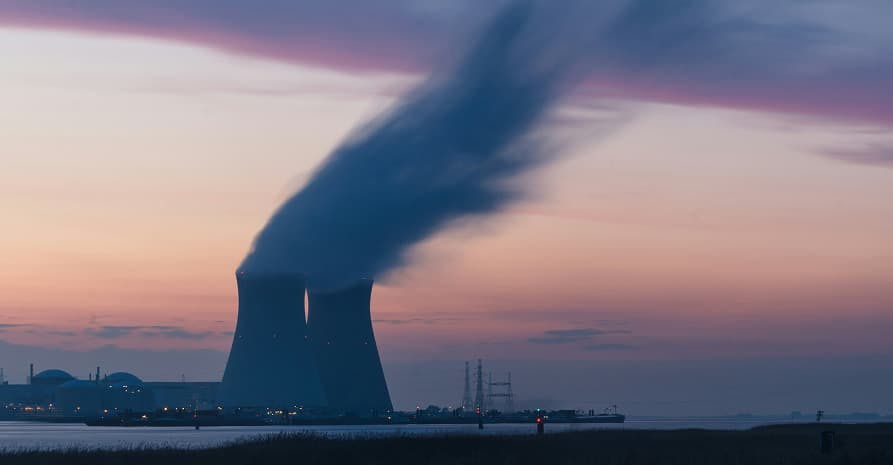
Is nuclear energy clean and ultimately good for global warming and your business?
Nuclear energy is a good choice for your business as it can help to reduce GHG emissions and serve as a reliable and efficient source of energy – but your company will need to remain flexible and aware of the time and resources required to make use of nuclear energy.
Nuclear energy presents some clear advantages, the largest one being that it doesn’t produce greenhouse gasses that continue to pollute the atmosphere.
However, nuclear energy takes a long time to properly instill and to become operational, is costly, and the nuclear power plants themselves are still subject to producing carbon emissions.
Think of nuclear energy as a variety of one of the many popular diets out there today: Whole30, Paleo, Gluten-Free, or Vegan. None is superior to any other, or more correct than another diet – it’s that each one presents their individual benefits and setbacks.
Nuclear energy, like other renewable energy resources, is one option to reduce emissions – but isn’t the answer to all of our climate change predicaments.
Nuclear energy has potential to help us in the climate change crisis, but we need to alter the way it is produced so that we reap the benefits rather than create more environmental problems in the process.
What about Greenly?
If reading this article about nuclear energy has made you interested in reducing your carbon emission to further fight against climate change – Greenly can help you!
At Greenly we can help you to assess your company’s carbon footprint, and then give you the tools you need to cut down on emissions. Why not request a free demo with one of our experts - no obligation or commitment required.
